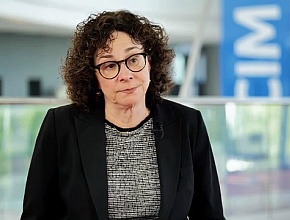Which antithrombotic drugs should be avoided and which are preferred in elderly patients?
Mark Crowther, MD: The reason we like to think that we should treat elderly patients differently is because, first of all, as you get older, your risk of bleeding goes up, and secondarily, the use of other medications that can cause additional complications, like aspirin or clopidogrel, go up. There are also issues around compliance and ability to take large numbers of medications, medication interactions. So people are hesitant to use blood-thinning therapies in elderly patients. But one thing that we know for sure, looking at the studies that have been done, in terms of the ability to prevent strokes, particularly atrial fibrillation, is that the older you are, the more benefit you get from blood-thinning therapy. As you get older, the benefit increases, as do the risks.
The key thing is that no patient should be excluded from anticoagulants based solely on their age. There is no such thing as an age exclusion. Patients should be excluded, if ever, based on the combination of the likelihood of benefit weighed off against the likelihood of bleeding. I will give you specific examples. If you have a 92-year-old woman who is otherwise quite well on 2 or 3 other medications with high-risk atrial fibrillation, there is no question that the patient should be on blood-thinning therapy. On the other hand, if you have a 70-year-old man who is on 8 different medications who has recently had a big bleed from an ulcer in his duodenum, no matter how high their risk of atrial fibrillation–associated stroke is, you might not choose to put that person on an anticoagulant, at least initially, because the risk of bleeding would be very high.
 English
English
 Español
Español
 українська
українська









